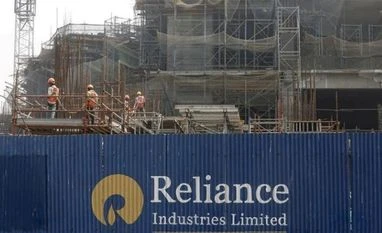Twelve entities, acting on behalf of Reliance Industries (RIL), booked gains of Rs 513 crore by squaring off derivatives' positions in Reliance Petroleum on November 29, 2007. The elaborate scheme they devised to achieve these gains allegedly violated provisions of The Securities and Exchange Board of India (Sebi) Act, The Securities Contract (Regulation) Act (SCRA) and the Sebi Prevention of Unfair Trade Practices Regulations.
For 3,379 days, little happened. Three people — M Damodaran, C B Bhave and U K Sinha — were at the helm of affairs at Sebi in this period. Damodaran for a little over two months, Bhave for three years between 2008 and 2011, while Sinha had six full years.
For the next 23 days, too, not much. But, 3,403 days after the violation, RIL was asked to repay its alleged ill-gotten gains, with interest. Though such an order is usually teamwork, and was drafted by wholetime member G Mahalingam, people in the know say the call of the man at the top is crucial.
Therefore, credit is due to new Sebi chief Ajay Tyagi, to have taken the big decision only 24 days into the new job. It looks awesome, particularly in the backdrop of years gone by.
This piece is as much about the people who made the order happen, as those who made the order necessary.
Twelve agent companies – Gujarat Pet Coke and Petro Product Supply, Aarthik Commercial, LPG Infrastructure India, Relpol Plastic Products, Fine Tech Commercial, Pipeline Infrastructure India, Motech Software, Darshan Securities, Relogistics (India), Relogistics Rajasthan, Vinamra Universal, and Dharti Investment and Holdings – performed the coordinated derivatives operation on behalf of RIL, and transferred the gains to the principal.
But, companies do not act by themselves. It is people who drive them. Companies have boards of directors for taking decisions. And, key managerial personnel who implement these.
The order identifies some individuals involved in the operation. It refers to one Sandeep Agarwal, an employee of RIL’s wholly owned subsidiary. Agarwal was the person authorised to execute the derivatives trades of agent entities, as well as the cash trades of RIL, when it offloaded Rs 4,023 crore worth of Reliance Petroleum shares. Other names referred to include RIL group president, corporate affiars, Parimal Nathwani, also director of Gujarat Pet Coke. And, Annu Tandon, a corporate consultant to RIL and director of Motech. Anand Jain, once strategic advisor at RIL, and Sanjay Punkia, both involved in the Navi Mumbai SEZ, were associated with Vinamra and Dharti.
A reading of Section 24 of SCRA would be in order. This deals with offences by companies and clearly states, “Where an offence has been committed by a company, every person who, at the time when the offence was committed, was in charge of, and was responsible to, the company for the conduct of the business of the company, as well as the company, shall be deemed to be guilty of the offence, and shall be liable to be proceeded against and punished accordingly.”
The section further adds, if it is proved the offence was “committed with the consent or connivance of, or is attributable to any gross negligence” on the part of any director, manager, secretary or other officer of the company, these people “shall also be deemed guilty of offence” and be “liable to be proceeded and punished accordingly”.
Mahalingam’s order does not have much discussion on the people – both named and unnamed – who planned, devised and executed the “well-planned, fraudulent and manipulative trading scheme.” To that extent, it falls short of its stated intent to “reinstill their (investors’) faith in the regulatory system”.
To read the full story, Subscribe Now at just Rs 249 a month
Already a subscriber? Log in
Subscribe To BS Premium
₹249
Renews automatically
₹1699₹1999
Opt for auto renewal and save Rs. 300 Renews automatically
₹1999
What you get on BS Premium?
-
Unlock 30+ premium stories daily hand-picked by our editors, across devices on browser and app.
-
Pick your 5 favourite companies, get a daily email with all news updates on them.
Full access to our intuitive epaper - clip, save, share articles from any device; newspaper archives from 2006.
Preferential invites to Business Standard events.
Curated newsletters on markets, personal finance, policy & politics, start-ups, technology, and more.
Need More Information - write to us at assist@bsmail.in
)